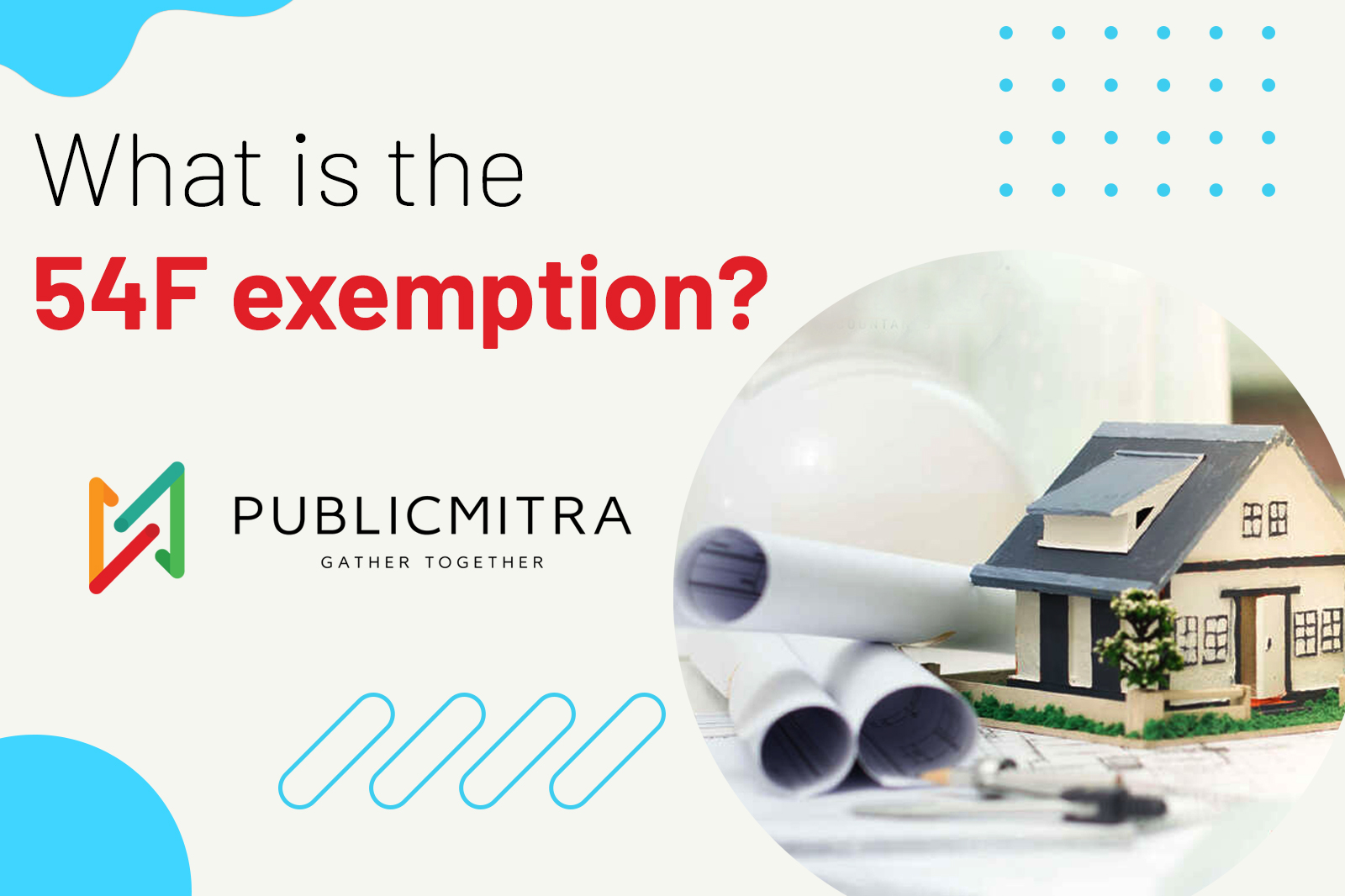What is the 54F exemption?
If you have ever sold a financial asset, you must have paid CGT, the Capital Gains Tax. Acquiring a financial asset is the goal of most people who consider financial planning as an important aspect of life. When you do successfully acquire an asset that appreciates, any profits that you make from the sale of the asset are capital gains and capital gains incur taxes. These taxes generally range from 10 – 20% depending on the tax slab of the individual. The more capital gains your asset makes for you in the long term, the more tax you will end up paying. You will lose a huge chunk of the profits in the form of taxes. Since owning a residential property is the dream of every Indian, the Government of India has taken note of this and the Income Tax department has come up with a few exemptions that will apply to individuals and Hindi United Families (HUFs).
The 54F Exemption:
This exemption applies to capital gains obtained from the sale of all capital assets except residential properties. The rule for this exemption is that all the proceeds from the sale should be reinvested into a residential property.
Imagine this: You have a great taste for art and over the years you have curated an intricate collection of excellent art. A collection that has appreciated a lot ever since you started acquiring Art. If you have spent ₹30 lakhs in all the acquisitions, including all the successful bids, and the total current value of your art portfolio is ₹75 lakhs, then if you proceed to liquidate your collection by selling it for the current value, your Long Term Capital Gains would be ₹75 lakhs – ₹30 lakhs, which is ₹45 lakhs.
Now with the 20% tax that is usually levied upon such Long Term Capital Gains by IT, you might lose up to ₹9 lakh just in the form of taxes!
54F Exemption can help you save the entire ₹9 lakh. All you need to do is proceed to reinvest all the capital from the sale including the gains, which in this case in ₹75 lakhs, into a residential property. By doing so, the Long Term Capital Gains are exempted from being taxable.
But What are Capital Assets?
Most forms of financial assets are what is known as Capital Asset. These include everything from real estate property like a house and a piece of land, jewelry, investments such as mutual funds, equities, and stock positions to trademarks, patents, vehicles, and machinery.
For tax purposes, capital assets are further classified into two categories:
Short-Term Capital Asset (STCA): This includes assets held for 36 months or less preceding the date of transfer.
Long-Term Capital Asset (LTCA): Assets held for 36 months or more before the transfer date are considered long-term capital assets.
It’s important to note the exceptions:
For assets like preference shares or equity listed on a recognized Indian stock exchange, the holding period is reduced to 12 months. Unlisted company shares have a holding period of 24 months instead of 36.
Requirements for Claiming an Exemption under Section 54F
To claim a valid exemption under Section 54F, these basic requirements must be fulfilled:
Eligibility:
The exemption is available to individuals and Hindu Undivided Families (HUFs).
Use of Sale Proceeds:
The sale proceeds must be used in one of the following ways:
- To purchase a new residential property one year before the date of sale of the asset.
- To buy a residential property within 2 years from the date of sale of the asset.
- To construct a residential property within 3 years from the date of sale of the asset.
If you invest only a portion of the sale proceeds in the property, the exemption will be calculated proportionately:
Exemption = (Capital gains * Amount invested) / Net Consideration
Significance of Net Consideration under Section 54F
To fully utilize the benefits of Section 54F, it’s essential to understand key terms, including “Net Consideration.” This term refers to the full value of the consideration received or accruing from the transfer of the capital asset, reduced by any expenditures wholly and exclusively incurred in connection with the transfer.
In simpler terms, “Net Consideration” represents the amount you receive after deducting all expenses associated with the sale of the asset.
Union Budget 2023-24 Impact on Section 54F
Previously, Section 54F allowed an exemption on long-term capital gains from the sale of any asset, as long as the net consideration was reinvested in purchasing or constructing a house property. There was no limit on the amount that was exempted.
The new budget changed this and has set a cap of INR 10 crore. This means that only amounts up to ₹10 crore are eligible for tax exemption under Section 54F. The purpose behind this change is to address the shortage of housing and promote the building of new houses. The government of India aims to prevent high net-worth individuals from claiming huge deductions that defeat the intended purpose. So if you are planning on reinvesting your sale proceeds that exceed ₹10 crores, you may not qualify for tax benefits after April 1, 2023.












